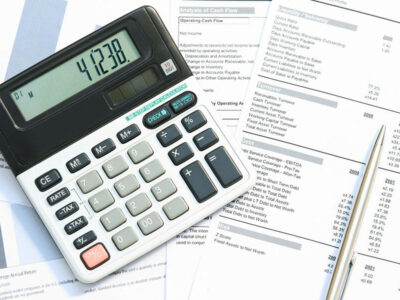
We have been using Shogo for years to automatically create the daily sales journal from various restaurant POS systems to QBO. You need to analyze how funds are hitting your bank and set up your restaurant bookkeeping system to mirror that activity. NetSuite has packaged the experience gained from tens of thousands of worldwide deployments over two decades into a set of leading practices that pave a clear path to success and are proven to deliver rapid business value.
- Check out our hotel operations management guide to learn more about financial management and other aspects of running a successful hotel.
- Let’s walk through the pros and cons of each to determine whether outsourcing or keeping your accounting in-house is right for your restaurant.
- Reconciliation ensures accuracy and prevents fraud and accounting errors, so this process must be conducted regularly.
- It’s a good idea to consider outsourcing your books to an outside bookkeeper who can help you stay compliant and on top of your finances.
- Keeping a watchful eye on the restaurant bookkeeping process is especially important for restaurants because of their slim profit margins.
- My Perfect Resume has over 250 cover letter examples for various jobs and industries.
- As a recent high school graduate with limited work experience, Malakai Hansen wants to emphasize his volunteer experience, extracurricular activities and academic achievements to secure his first job.
Reporting & Analytics
- The templates can also be used as a starting point for creating a more comprehensive accounting process or as a backup to existing accounting software.
- Record a separate daily sales entry for each day (not monthly or weekly).
- It’s great that a customer raved about a dish, but what are the numbers telling you?
- While different cultures have varying attitudes toward tipping servers and bar staff, these tips carry financial implications for the business just the same—not least when it comes to tax collection.
- Also, the more accurate the bookkeeping data, the sharper the insights restaurant leadership will glean from financial reports as they plan for the future.
- While no defined average food cost percentage is defined, this range has been a well-known standard for US-based food operators.
- Taylor Houston has extensive experience in his field but wants to change careers.
Depending on your sales volume and the tasks you need help with, your bookkeeper may only work on your records a couple of hours a day or week. Ideally, you’ll want a bookkeeper who is familiar with the restaurant industry. Typically, they’re happy to send their bookkeepers more work if they can accommodate it. Employees are required by law to report tips to the employer, who then includes the tip income on the employee’s Form W-2. Employers are required to retain employee tip reports and withhold taxes based upon wages and tip income received by the employee and to deposit this tax.

Prepare bank deposits.
- Restaurant costs come in all shapes and sizes, from food costs to labor costs and everything in between and understanding your overhead costs is key to managing your budget.
- For restaurant operators, as for all business leaders, bookkeeping helps monitor the business’s performance and overall health by recording all the financial ins and outs.
- These can include charges for customization options, installation or setup services, integrations, and maintenance or support services.
- There’s a centralized database, so transferring resources from location A to location B is automatically recorded across the system, eliminating the need for both locations to record the transfer.
- This report helps restaurant leaders understand how much of each ingredient they’re using versus how much they should be using based on the restaurant’s recipes, in terms of both cost and quantity.
- There are a lot of pieces to the report, but it’s a quick and easy process if you set it up properly.
- Many business owners will have everything they need in the reporting module already.
So, take extra care to ensure you always have the correct amount on hand when your tax bill comes due. With the right bookkeeping tools in place, you’ll have the data necessary to make informed financial decisions that will help keep your business profitable. It’s important to have an overarching financial plan before you get started with restaurant bookkeeping.
Handle accounts payable
Net profit margin, margin, profit margin, or gross margin is your net profit expressed as a percentage of revenue and is a measure of your profitability. A Prime Cost Report is also valuable because it enables you to monitor cost fluctuations and track trends. Items you’ve purchased from your vendor may spoil or not meet your quality standards. Tracking your numbers and KPIs will let you know what business areas require urgent attention. Join our Local Partner Advocate Program and refer with confidence, as part of our growing community of restaurant experts.
Do you need online bookkeeping software instead of accounting software?
Look for more than just a bookkeeping solution; accounting software should include more detail and let you generate invoices and detailed reports. Reconciliation ensures accuracy and prevents fraud and accounting errors, so this process must be conducted regularly. You can quickly upload your bank and credit card statements, compare them with your reports, and generate accurate financial statements in minutes. A bookkeeper records, organizes, and maintains the restaurant’s financial records, providing management with accurate financial data to use when making decisions that affect the business’s overall health. The transactions that bookkeepers oversee and organize include payments received from customers, payments made to vendors, and taxes paid to the relevant authorities. A restaurant’s bookkeeper may also monitor payroll to ensure that employees are paid what they’re owed and the tax office receives its correct cut.
Accounting software offers features for tracking the revenue and expenses of a business. The best small business accounting software has a wide range of reports that allow you to analyze the financial health of your business. These platforms also have dashboards that provide an at-a-glance overview of key financial aspects, like accounts receivable, accounts payable, historical sales data and cash flow. Small business accounting software is also useful for tax bookkeeping for restaurants management, as it ensures that you accurately estimate your tax liabilities and save money accordingly. The best accounting software integrates with other key business systems, like payroll software and HR software, thereby eliminating the need to enter the same data manually in multiple systems. Regularly analyzing your restaurant’s financial and operational data is crucial for restaurant bookkeepers to help the business maintain a healthy bottom line.
- When you calculate break-even point in dollars, you’re estimating how much revenue your restaurant will need to generate to end with a $0 balance at the end of a certain period of time.
- A financial plan will help you stay organized and track your financial progress and metrics.
- For DIY bookkeepers, this means careful record-keeping and keeping a close eye on your tax obligations.
- Here is the ultimate list of restaurant business KPIs you’ll lose sleep over.
- But since financial reports can provide useful insights to grow their business, the savvy owner makes full use of them.
- Download Fourth Hospitality and change the way you handle restaurant management.
Reconciling your accounts is the only way to know that you have recorded all of your financial transactions. If you incorrectly file your payroll taxes or file them late, the penalties and interest you will be assessed can be quite large. You can upload your invoices to these services and they will code them by item to your various COGS and expense accounts.
Monitor your financial progress:
By keeping detailed records of costs and revenue, you can build a strong foundation for making informed business decisions. Understanding your restaurant’s financial performance with a P&L statement is essential when optimising your restaurant’s operating expenses, but this isn’t the only benefit of keeping an accurate P&L. Access operational and analytical tools to better manage food costs, inventory, and budgets. XtraCHEF’s costing tools provides Cost Trend Reports and Declining Budget features to improve decision-making and help you boost your bottom line. To calculate EBITDA, grab your earnings, tax and interest numbers from your income statement, and amortization and depreciation from your cash flow statement.
Data & Systems Administration
